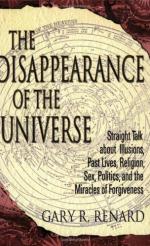|
This section contains 3,608 words (approx. 13 pages at 300 words per page) |

|
Most of the major philosophical problems of perception derive from the fact of "illusions." These problems center on the question whether perception can give us true and direct knowledge of the world, and thus they are basic to epistemology. This entry will describe illusions and set forth and examine the argument from illusion that perception cannot be trusted as a source of knowledge of the external world but affords direct awareness only of appearances or sensa.
Three Kinds of Illusory Experience
The term illusion is used by philosophers to cover a range of phenomena approximately classifiable as follows.
Illusions Proper
Illusions proper occur when the percipient is deceived or is liable to be deceived in identifying the object perceived or its properties. Psychologists have produced a number of optical illusions, such as equal lines that appear to be of unequal length; a stationary balloon that when inflated and...
|
This section contains 3,608 words (approx. 13 pages at 300 words per page) |

|


